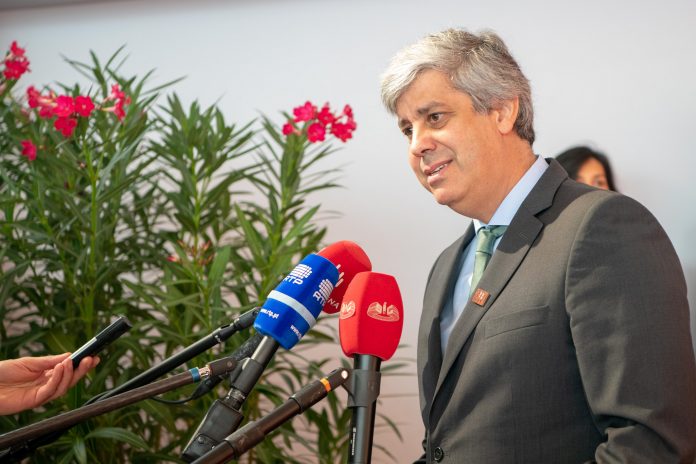The chairman of euro zone finance ministers described a Franco-German proposal for a euro zone budget as a “breakthrough” even though more work on it is needed.
“Further work will certainly be needed on the design of possible instruments for competitiveness, convergence and stabilisation,” Mario Centeno told a news conference. He earlier called it a “breakthrough”.
A joint euro zone budget focused on financing investment and reforms that help euro zone economies converge has been agreed by France and Germany, the euro zone’s two biggest economies.
As reported by the Reuters news agency, however, some officials see that focus also as its weakness, because it does not stress the stabilisation role for the budget which some countries would like to see in the form of unemployment insurance or a rainy-day fund.
But all EU finance ministers except Britain, which is due to leave the bloc next March, welcomed the proposal on November 19. They agreed it as an important contribution to the package to be agreed in December to strengthen the euro zone’s resilience to crises.
Under the joint proposal, the euro zone budget would be available only to those members of the currency bloc that abide by EU rules which limit budget deficits and debt.
This is something that Italy does not agree with. “If, as it seems, it [the plan] damages Italy, it will never have our support,” Deputy Prime Minister Matteo Salvini told reporters in Milan.
According to Reuters, the proposal is for the budget’s main role is to foster convergence and support reforms “in particular by co-financing growth-enhancing public expenditures such as investments, research and development, innovation and human capital”.
France and Germany are proposing to put the pool of money, which would come from dedicated taxes and individual national contributions, under a system of shared management where governments would prepare short-term investment plans and the Commission would approve them.
The proposal leaves the controversial issue of the size of the budget for EU leaders to decide, reported Reuters.

